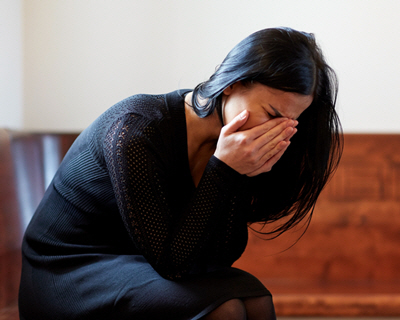
Grief
 One day you’re fine, the next you’re not.
One day you’re fine, the next you’re not.
Martha, a well-educated, accomplished woman in her 70’s, came in one bright Spring morning. “My children believe I need to be here. I appreciate you seeing me. I hate to bother anyone.”
“What makes your children think you need to be here?” I asked. “I have not cried once since my husband died last October” she responded.
Martha went on to explain that her children, a son who was in his early 50’s, a daughter three years younger and another son in his early 40’s, were concerned not just by her lack of tears but what appeared to be some pretty intense denial about her life at that point.
John’s children had the opposite concern.
A man in his late 40’s, a typical middle-class, hardworking man whose wife died by suicide, came in after his college age twins begged him to do something. “I cannot stop crying” John admitted as he blew his nose.
He went on to describe his attempts to move forward and function in a world where he no longer has a partner and where he does not feel like he can talk about it.
He said he felt incapable of thinking of anything else.
The “what ifs” are like quick sand.
They suck you in and before you realize it, you have driven 30 miles past your exit, or the lights have been cut off for non-payment.
“You know that period right after the baby is born and you think you will never be the same? You know, you can’t remember if you brushed your teeth.”
“Or you answer the door with your boobs hanging out because you are nursing a newborn. That is where I am” admits Janet, who is crying and laughing at the same time.
Janet and Dan had their second baby 18 months before she came in to see me – a beautiful boy who died at 13 months.
 Their oldest, Samantha, just turned 4.
Their oldest, Samantha, just turned 4.
She is a ball of energy and a joy to behold, according to Janet.
“I keep playing it over and over in my head.”
“What if I had not put him down in his crib but instead nursed him to sleep in our bed?”
All these stories share their own version of this question.
And yet for each, their grief is unique and personal.
Integrating their intensely personal loss into their lives so that they could be in the world, connecting with their loved ones, both living and deceased, required support, direction, and a major dose of courage!
Grieving, like birthing, is physical and calls for skill and patience.
And like birth, grief requires a witness, someone who will be present to you, who will hear you and believe in you even when you doubt yourself.
Humans are not meant to grieve alone!
I am here and ready to support you as you navigate this leg of the journey.
Armed with lived and professional experience and expert training in the area of grief, Complicated Grief as well as perinatal loss and suicide loss, I am ready to support you as you come to terms with life in light of your loss.
Contact me for a free consultation – (910) 470-2387
Let’s explore how I can help you.
